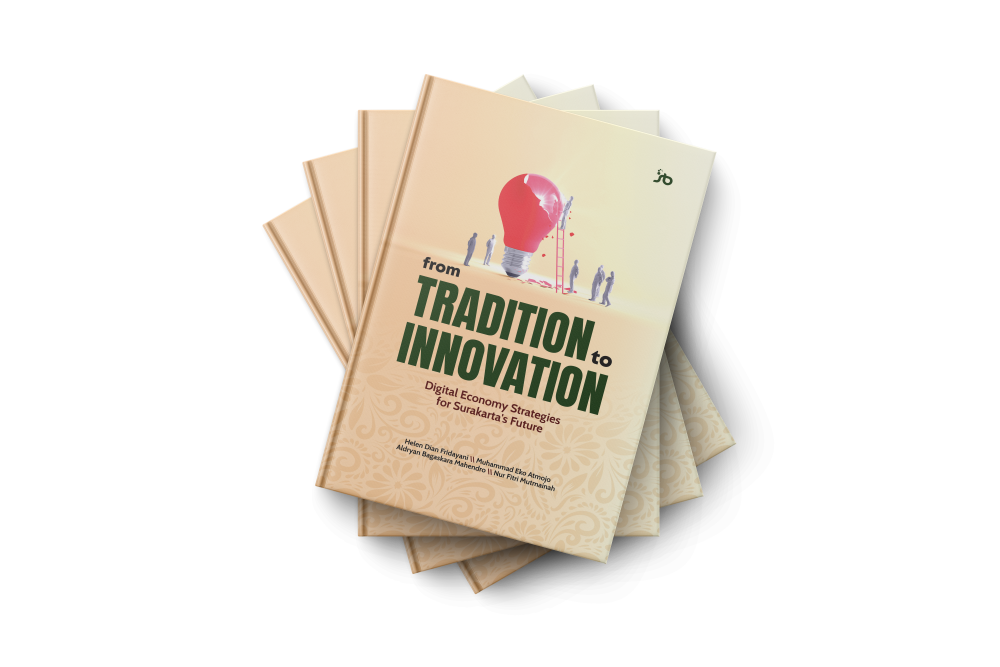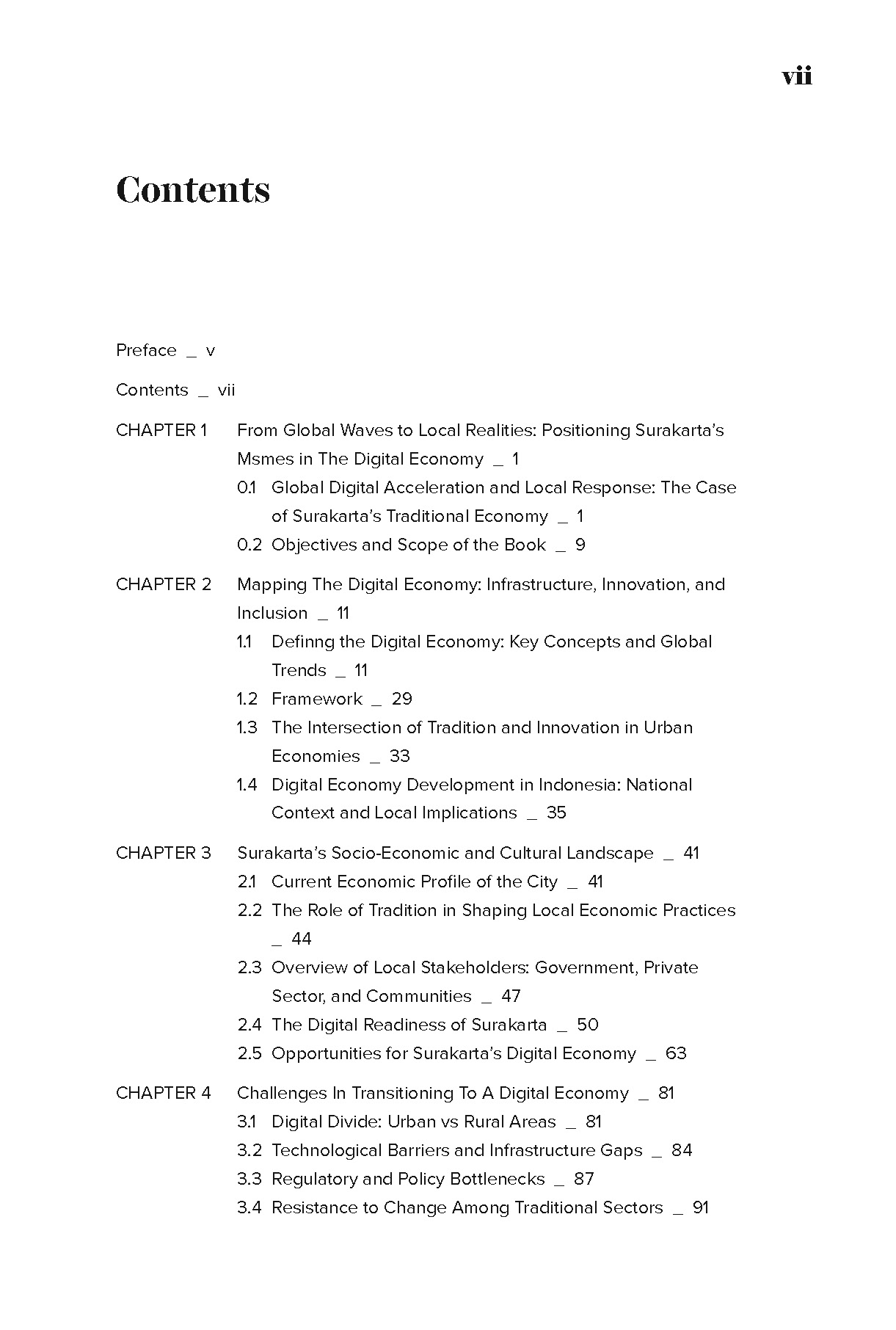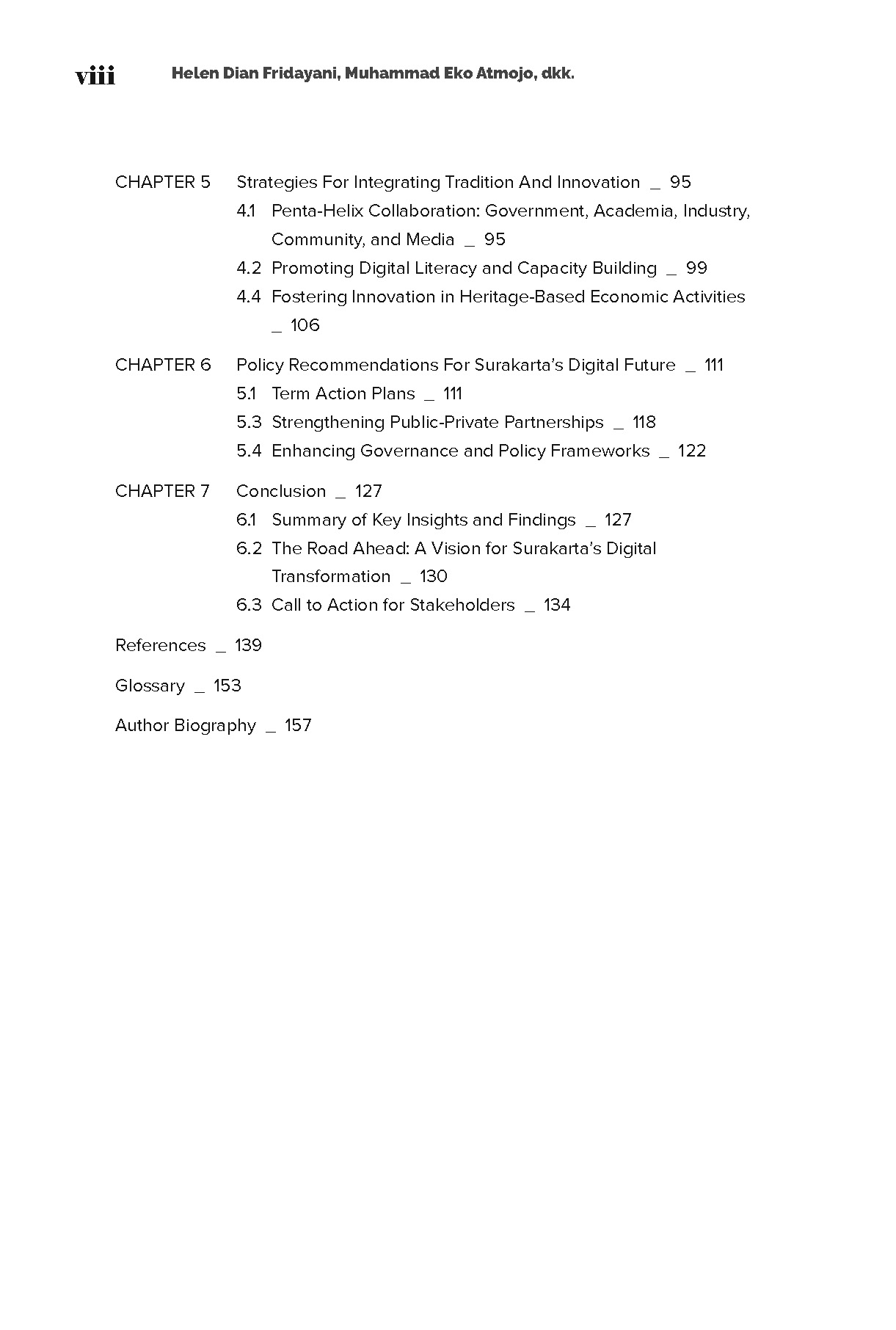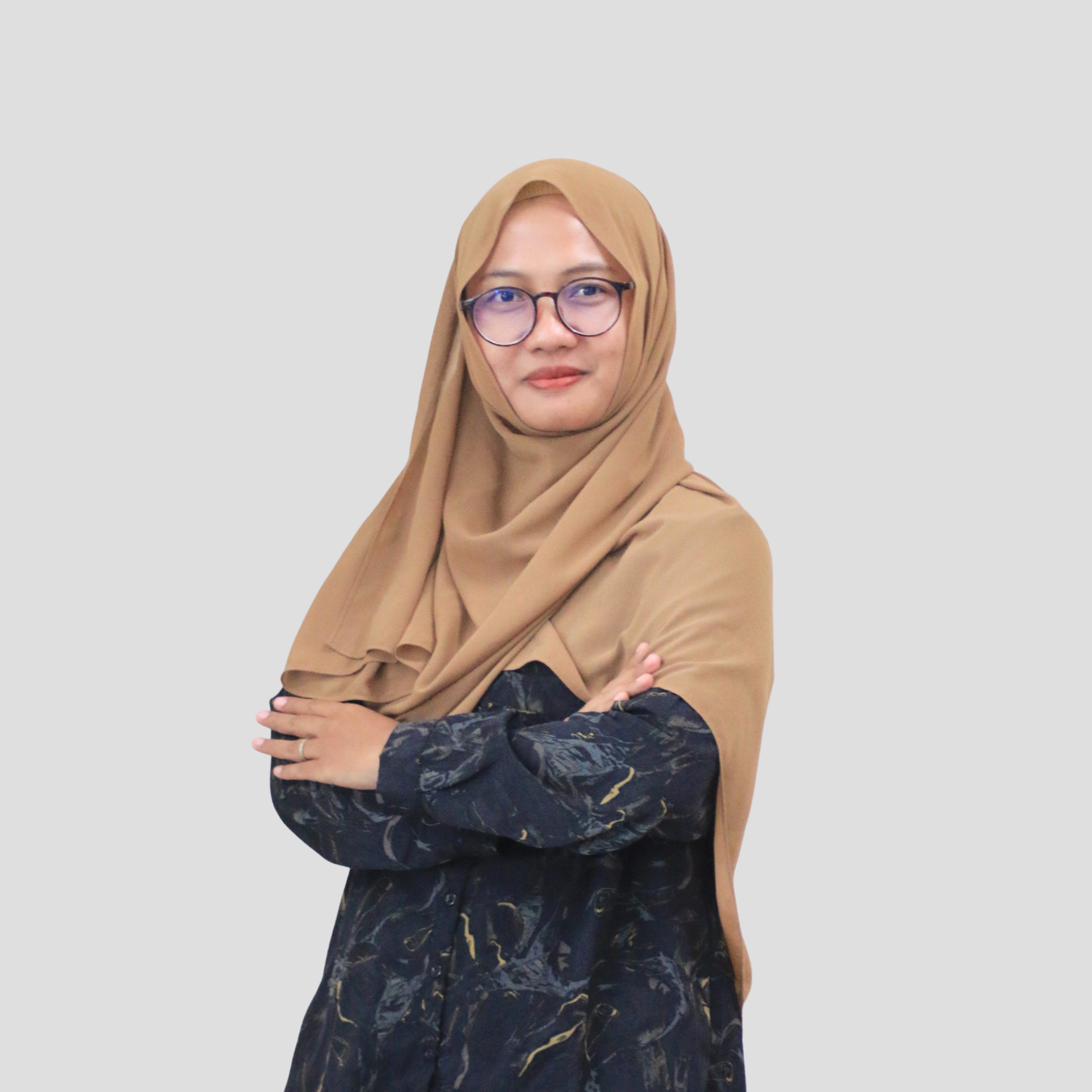is a lecturer and researcher in the Department of Government Studies at Universitas Muhammadiyah Yogyakarta (UMY), Indonesia. She obtained her Bachelor’s and Master’s degrees in Government Studies from UMY in 2013 and 2018, respectively, before pursuing her doctoral studies at the National Cheng Kung University (NCKU), Taiwan. In 2023, she was awarded a Ph.D. from the Graduate Institute of Political Economy within the Department of Political Science at NCKU. Her doctoral research focused on local governance and public policy, with a particular emphasis on digital transformation and its implications for micro and small enterprises (MSEs) in Indonesia.
Dr. Fridayani is actively affiliated with the Jusuf Kalla School of Government (JKSG) and the Center for Digital Governance and Public Policy at UMY. Her scholarly work is deeply rooted in the intersection of digital governance, local government administration, and inclusive public policy. With a keen interest in the dynamics of digitalisation in emerging economies, she has contributed significantly to the academic discourse on how technological innovation reshapes public service delivery, economic participation, and grassroots governance.
Her recent research explores the challenges of the digital divide, particularly in relation to MSEs operating in semi-urban and rural areas of Yogyakarta. Through empirical studies conducted during and after the COVID-19 pandemic, Dr. Fridayani has examined the role of government policies, infrastructure, and digital literacy in shaping the digital readiness and resilience of informal economic actors. Her findings underscore the critical role of state intervention in
enabling digital inclusion, economic empowerment, and sustainable
local development.
In addition to her academic writing, she is actively involved in multidisciplinary research collaborations and policy dialogues aimed at promoting smart governance, digital equity, and socio-economic transformation in Indonesia. Dr. Fridayani’s expertise in political economy and digital public policy places her among the emerging scholars leading conversations around the future of governance in the digital age. Her work continues to inform both academic and policy communities on effective strategies to integrate technology into public administration for inclusive and sustainable development.
From Tradition to Innovation: Digital Economy Strategies for Surakarta’s Future
Buku ini menggambarkan bagaimana Surakarta dapat menjembatani warisan budaya dan inovasi digital untuk membangun ekonomi kota yang berkelanjutan, inklusif, dan berdaya saing di era transformasi global.

Strategi Ekonomi Digital
In recent years, the discourse surrounding urban development has increasingly turned toward digital transformation as a catalyst for economic progress. Yet, amid this global shift, the challenge for culturally rich cities like Surakarta lies in crafting development strategies that embrace innovation without compromising heritage. This book, “From Tradition to Innovation: Digital Economy Strategies for Surakarta’s Future,” seeks to respond to that challenge by exploring how traditional values and modern digital imperatives can coalesce to create a sustainable, inclusive, and resilient urban economy. Surakarta, renowned for its cultural legacy and historical identity, stands at a critical juncture. As the city seeks to elevate its position in the national and regional economic landscape, the digital economy offers a pathway that promises agility, empowerment, and prosperity. However, navigating this transition requires more than technology—it demands visionary leadership, responsive governance, strategic investment, and a deep understanding of local context.
This book is the result of interdisciplinary research and collaboration, combining insights from public policy, digital governance, economic development, urban planning, and socio-cultural studies. It presents a comprehensive framework for understanding and implementing digital economy strategies that are locally grounded yet globally relevant. Through critical analysis, case studies, and policy reflections, we examine how Surakarta can position itself as a model for secondary cities undergoing similar transformations in Southeast Asia and beyond. We are guided by the conviction that innovation should not replace tradition but rather evolve from it. By harnessing the city’s cultural assets, human capital, and institutional networks, Surakarta can foster a digital economy that is not only technologically advanced but also socially equitable and environmentally conscious.
This book is intended for scholars, practitioners, policymakers, and students who are interested in digital urbanism, smart city governance, and sustainable development. While every effort has been made to ensure the accuracy and depth of the analysis presented, we recognize that no work is ever truly complete. Therefore, we warmly welcome any feedback, suggestions, or constructive criticism from
readers. Such engagement is invaluable for refining future studies and strengthening our shared commitment to transformative, inclusive, and sustainable development.
Dapatkan Bukunya Sekarang Juga!
DAFTAR ISI
 Daftar Isi 1
Daftar Isi 1 Daftar Isi 2
Daftar Isi 2Spesifikasi Buku

Cetakan I, November 2025; 170 hlm, ukuran 15,5 x 23 cm, kertas isi Bookpaper hitam putih, kertas cover ivory 230 gram full colour, jilid lem panas (soft cover) dan shrink bungkus plastik.
Harga Buku
Sebelum melakukan pembayaran, cek ketersediaan stock kepada admin. Jika buku out of stock pengiriman membutuhkan waktu – 3 hari setelah pembayaran.
Rp 120.000
Rp 109,800

Tentang Penulis

Helen Dian Fridayani, S.IP., M.IP., Ph.D.

Muhammad Eko Atmojo, S.IP., M.IP.
is a dedicated academic and researcher serving as a lecturer in the Department of Government Studies at Universitas Muhammadiyah Yogyakarta (UMY), Indonesia. He completed both his undergraduate (S.IP.) and master’s (M.IP.) degrees in Government Affairs and Administration at UMY, where he cultivated a strong foundation in public administration, political science, and policy analysis. His academic journey has been marked by a consistent commitment to the study and application of governance principles, particularly in the context of Indonesia’s evolving democratic and development landscape. He also actively affiliated with the Jusuf Kalla School of Government (JKSG) and the Center for Digital Governance and Public Policy at UMY. His primary research interests include public policy formulation and evaluation, urban transportation systems, and the empowerment of micro, small, and medium enterprises (MSMEs). Within these areas, Eko Atmojo has developed a particular focus on the role of digital innovation in enhancing public sector performance and facilitating inclusive economic development. He has conducted and contributed to multiple studies examining how local governments can leverage digital tools and platforms to improve service delivery, boost citizen engagement, and support economic recovery efforts, especially in the wake of crises such as the COVID-19 pandemic. One of his notable research contributions explores the strategic use of social media— particularly Twitter—as a channel for government communication to support MSME resilience during times of economic disruption. His findings emphasize the transformative potential of digital governance and social media analytics in promoting transparency, responsiveness, and collaborative policymaking. Beyond his research, Muhammad Eko Atmojo is actively involved in academic collaborations, interdisciplinary research
projects, and community based development initiatives. He often engages with stakeholders from government institutions, civil society organizations, and academic networks to promote evidence-based policymaking and sustainable governance practices. His work consistently reflects a strong commitment to fostering public sector innovation, strengthening institutional capacity, and addressing critical development challenges facing urban and rural communities alike.
Aldryan Bagaskara Mahendro
is a strategic consultant and relationship builder with a cross-disciplinary background in busines development, marketing, and impact-driven innovation. With over five years of experience working across Europe and Southeast Asia, his work spans B2B partnership building, market strategy, and brand transformation—often at the intersection of sustainability and digital innovation. He has advised startups, public institutions, and SMEs on market positioning, go-to-market execution, and growth acceleration. Aldryan’s entrepreneurial initiatives, including ventures in circular fashion and mobility, have earned regional recognition and reflect his commitment to purpose-driven business. His strategic insights are grounded in hands-on experience—from co founding a consumer goods company to leading tourism revival campaigns in collaboration with local governments. Educated in Entrepreneurship and Small Business Management at Wittenborg University of Applied Sciences in Amsterdam, and in Business Management at the University of Brighton in the UK, Aldryan is passionate about making strategy accessible and actionable. This book reflects his dedication to bridging ideas and implementation, offering frameworks rooted in real-world experience.

Nur Fitri Mutmainah, S.IP., M.P.A.
is a lecturer and public administration researcher affiliated with Universitas Aisyiyah Yogyakarta (UNISA Yogyakarta), Indonesia. She earned her Bachelor’s degree in Government Studies UMY and further obtained her Master of Public Administration (M.P.A.) from Gadjah Mada University, where she developed strong expertise in policy management, participatory governance, and rural development administration. Her research portfolio spans critical areas of community empowerment, public service quality, and participatory health governance. Her recent publications include studies on the role of Village-Owned Enterprises (BUMDes) in micro, small, and medium enterprise (UMKM) development in Wonosobo District, approaches to stunting prevention through innovative digital weighing scales in Ende, and program evaluations on family resilience and local storytelling education reflecting a strong commitment to evidencebased community development. She has led competitive research and community service projects focusing on themes such as stunting reduction strategies in Klaten, collaborative governance for MSME adaptation to Industry 4.0 in DIY, and strengthening institutional capacity in community waste management. She is also involved in a variety of community outreach initiatives—from storytelling workshops promoting early childhood tolerance in Yogyakarta to using wayang kancil narratives to support primary teacher and parent engagement, as well as local digital promotional media development for UMKM and family health awareness interventions. Her work often bridges academic research, public policy, and community-based interventions demonstrating her commitment to inclusive governance and social development. With her emphasis on participatory methodology, program evaluation, and policy innovation, Nur Fitri Mutmainah contributes significantly to the development of evidence based public administration practice in Indonesia. Her collaborations with universities, local governments, and civil society actors position her as a rising expert in digital governance, community resilience, and grassroots driven development.